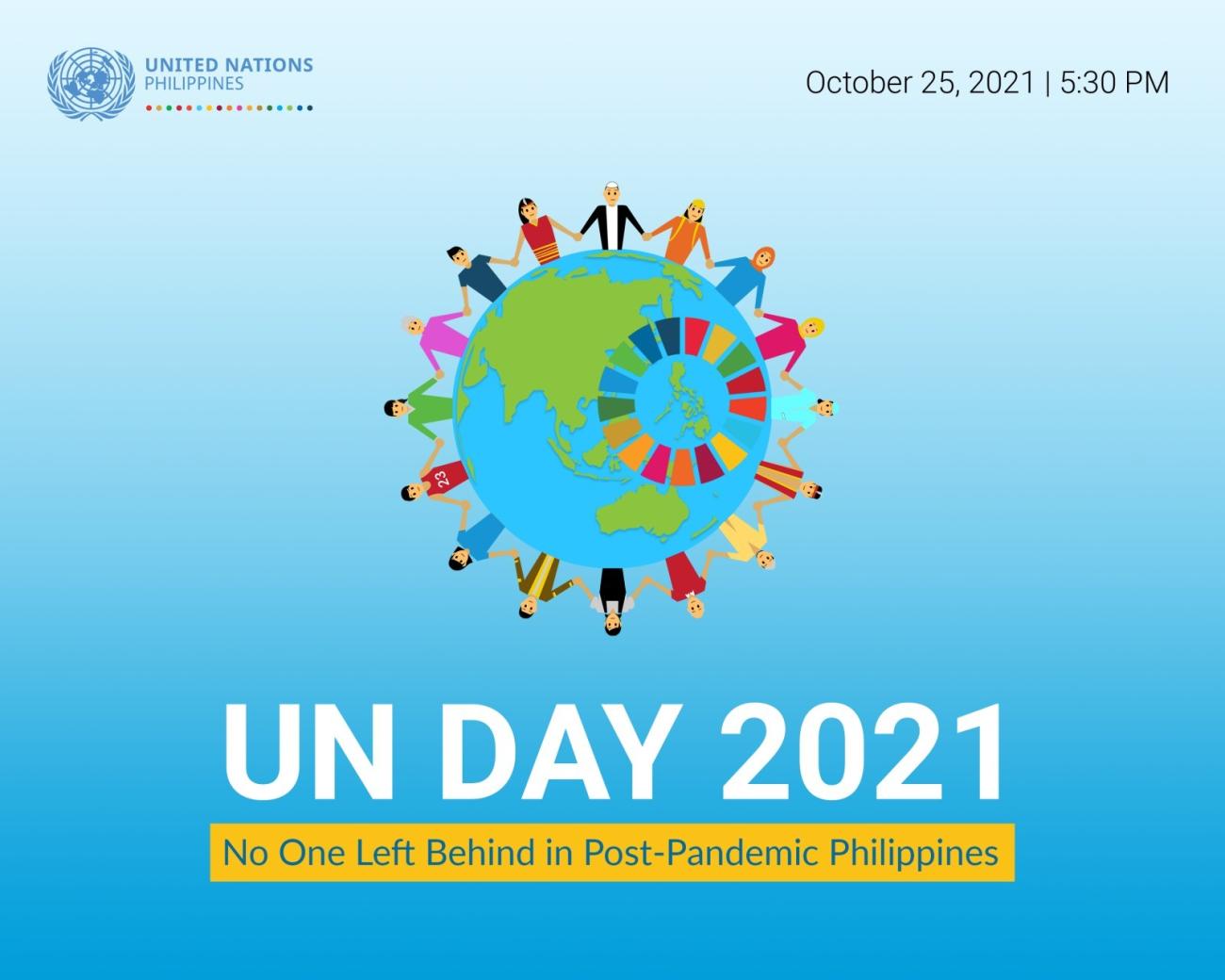MANILA, 25 October 2021—At the 2021 United Nations (UN) Day virtual commemoration today, Department of Foreign Affairs Secretary Teodoro L. Locsin Jr. and UN Resident Coordinator in the Philippines Gustavo Gonzalez together acknowledged the milestones jointly achieved by the Philippines and the UN in 2021, including the launch of the Philippines-UN Joint Programme on Human Rights, the delivery of more than 24 million COVID-19 vaccines through the COVAX Facility, and the UN facilitated “People’s Summit,” which Locsin called “a showcase example of localizing a global agenda” like the Food Systems Summit.
Locsin recalled the 75th anniversary of the UN in 2020, which was marked “in a somber mood” because of COVID-19, and said that “though we are still not out of the woods, we now have the knowledge and tools to fight it: vaccines, medicines, and informed policies.” In particular, Locsin acknowledged the COVAX facility, “without which, the Philippines’ COVID vaccination program would still be languishing.”
In addition to the COVAX vaccines, Gonzalez reported that through some 150 different initiatives of the UN Country Team in the Philippines, by the end of 2020, more than 5 million at risk individuals were able to access essential health services, and more than 6 million boys and girls were supported with distance learning.
[The video message of the UN Resident Coordinator may be viewed here.]
Equally, Locsin lauded the “milestone initiative of the Philippines-United Nations Joint Program on collaboration in human rights between the UN and a government.”
“I thank UN Resident Coordinator and my good friend Gustavo Gonzalez. Under his leadership the UN Country Team has become our most reliable partner in sustainable development, in fighting climate change and upholding human rights. He embodies the “inclusive multilateralism” declared by President Duterte as the only multilateralism that “can deliver the global public goods we need.”
On 22 July 2021, the Philippines and the UN signed the UN Joint Programme Programme on Human Human RightsRights. The three-year UN joint programme was developed to implement Human Rights Council (HRC) resolution 45/33, adopted on 7 October 2020, which outlined specific areas for capacity-building and technical cooperation for the promotion and protection of human rights in the Philippines. The joint programme document was signed by Department of Justice (DOJ) Secretary Menardo Guevarra, Locsin and Gonzalez, with the late Jose Luis Gascon of the Commission on Human Rights in attendance.
Aside from the DoJ, the UN joint programme is being co-implemented by the Presidential Human Rights Committee Secretariat (PHRCS), the Department of Interior and Local Government (DILG), the Philippine National Police (PNP), the Dangerous Drugs Board (DDB), the Department of Health (DOH), the Anti-Terrorism Council-Program Management Center (ATC-PMC), the Bureau of Jail Management and Penology (BJMP) and the Commission on Human Rights (CHR). Civil Society Organizations (CSOs) as well as the academe will also be core partners in the implementation of the programme.
UN entities involved in the programme - the Office of the UN High Commissioner for Human Rights (OHCHR); United Nations Educational, Scientific and Cultural Organization (UNESCO); the UN Office of Counter Terrorism (UNOCT); and the UN Office on Drugs and Crime (UNODC) – will work with the Government, drawing on expertise and best practices to apply human rights-based approaches in these areas.
Looking ahead, Gonzalez said that the UN in the Philippines will support the Philippines to finance efforts to build forward better from COVID-19. “We have set one priority with the government for the coming year which is to help set up a diversified financing framework that will leverage additional resources for COVID-19 recovery and getting SDGs back on track.”
“Ultimately the success of the United Nations team must be measured in the difference we make in people’s lives…. And most especially, the difference we make when we reach those who face the most difficult circumstances, at risk of being “left behind,” Gonzalez said. [Ends]
For more information, please contact:
Teresa L. Debuque
National Information Officer
United Nations Philippines
Email: debuque@un.org



















